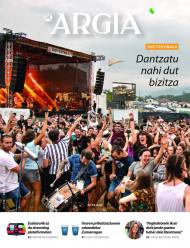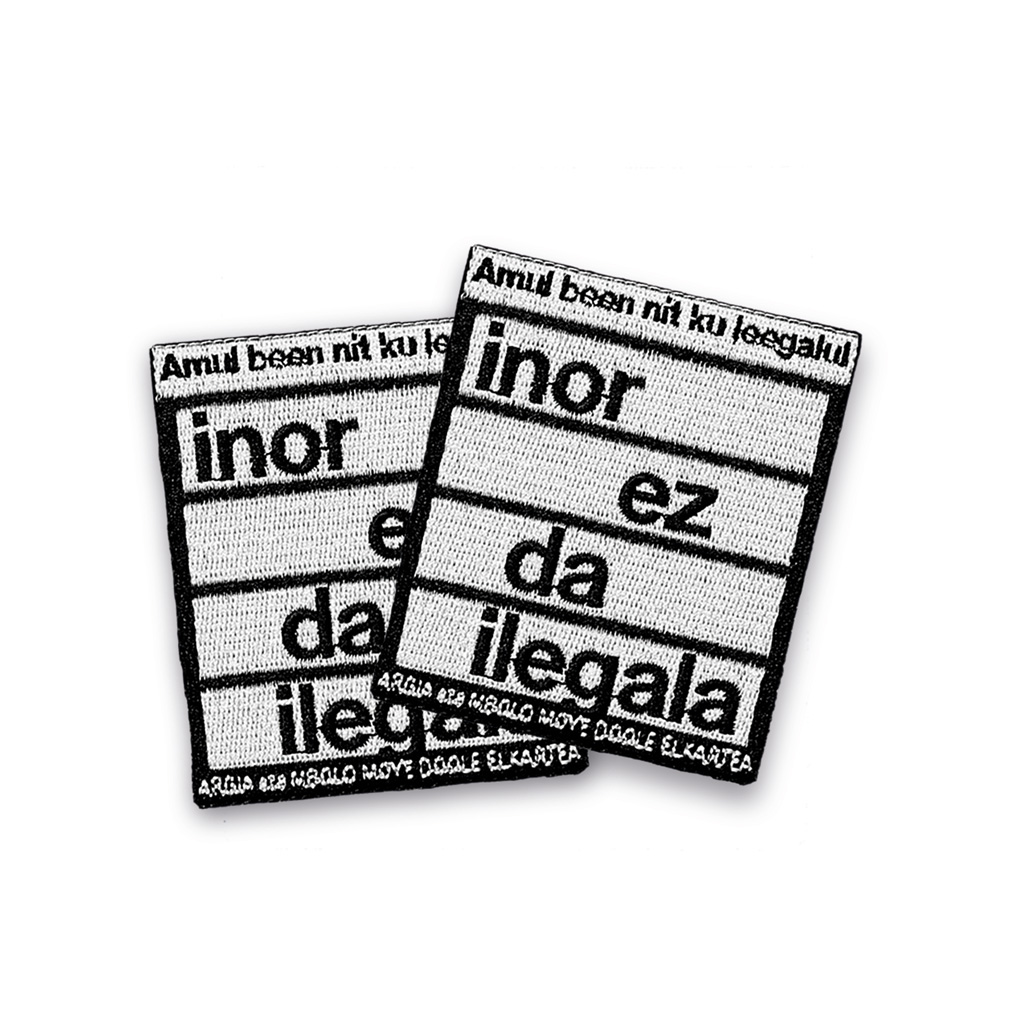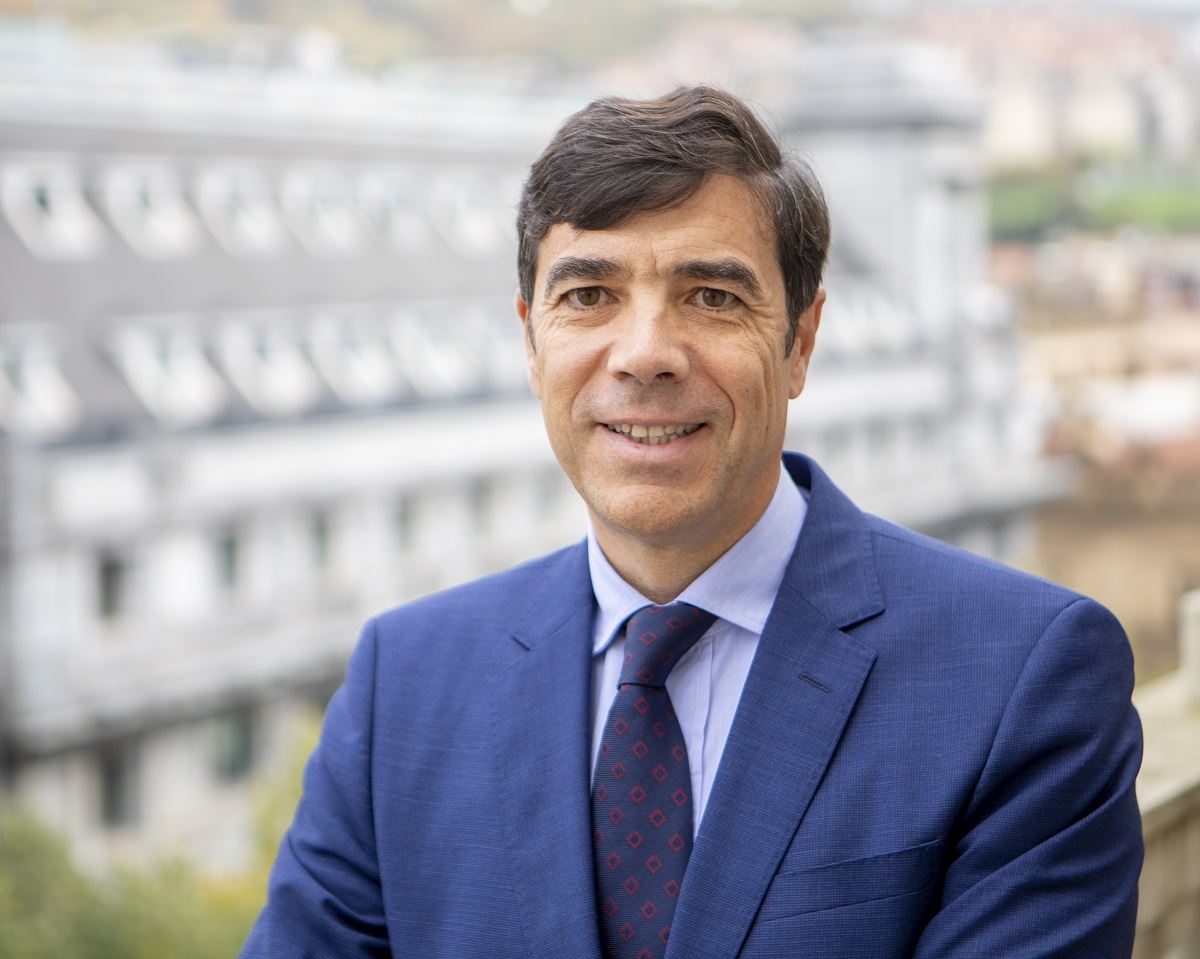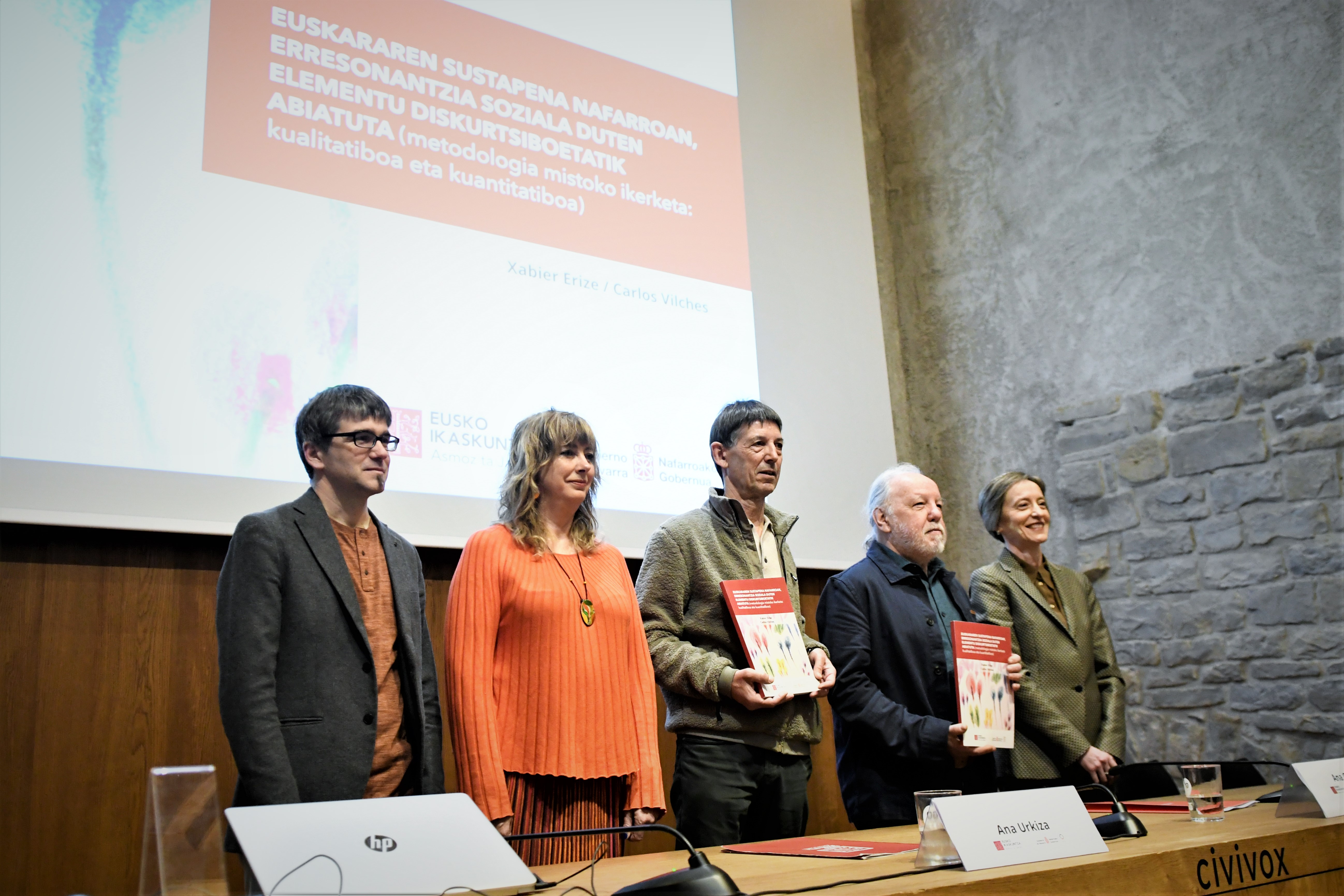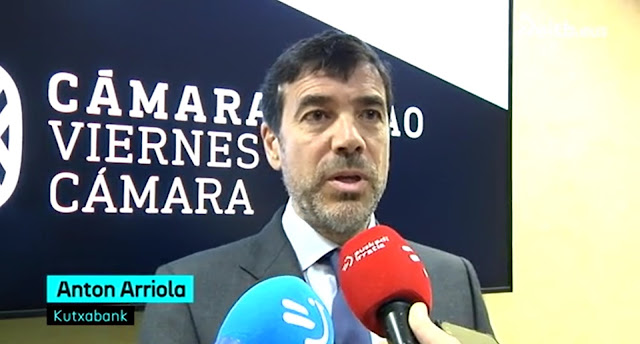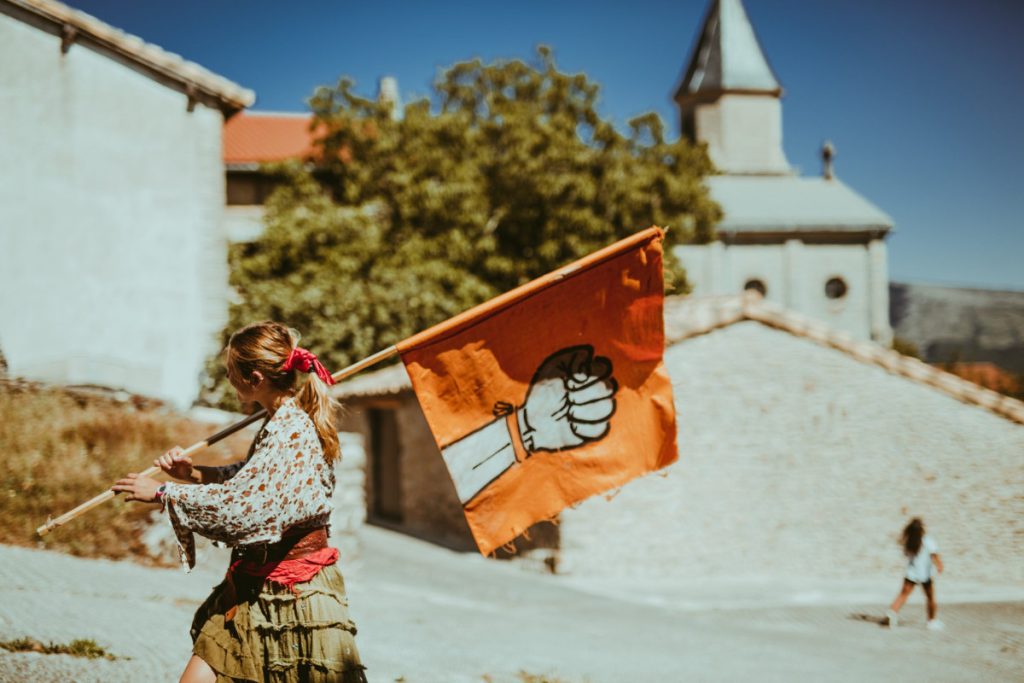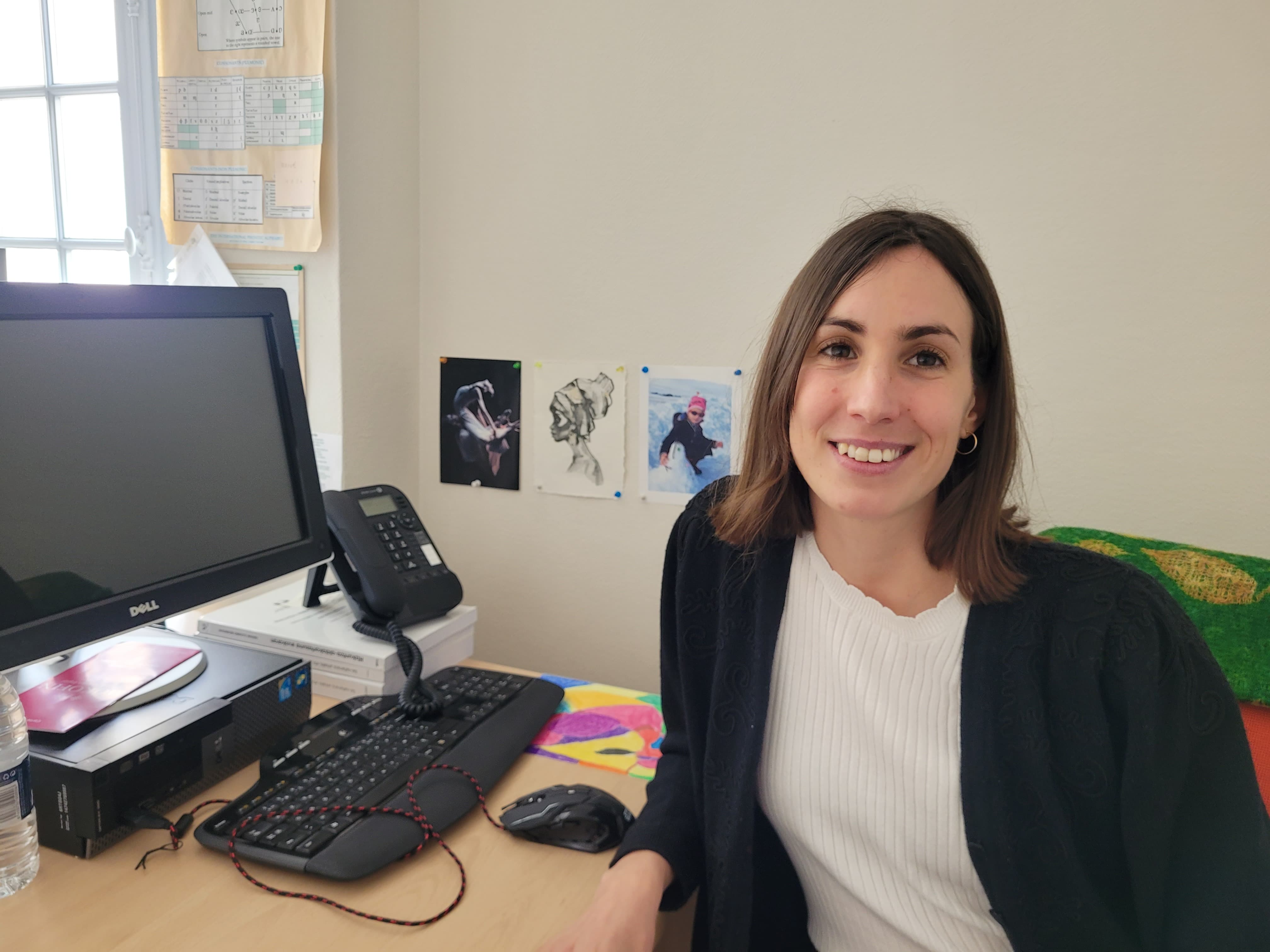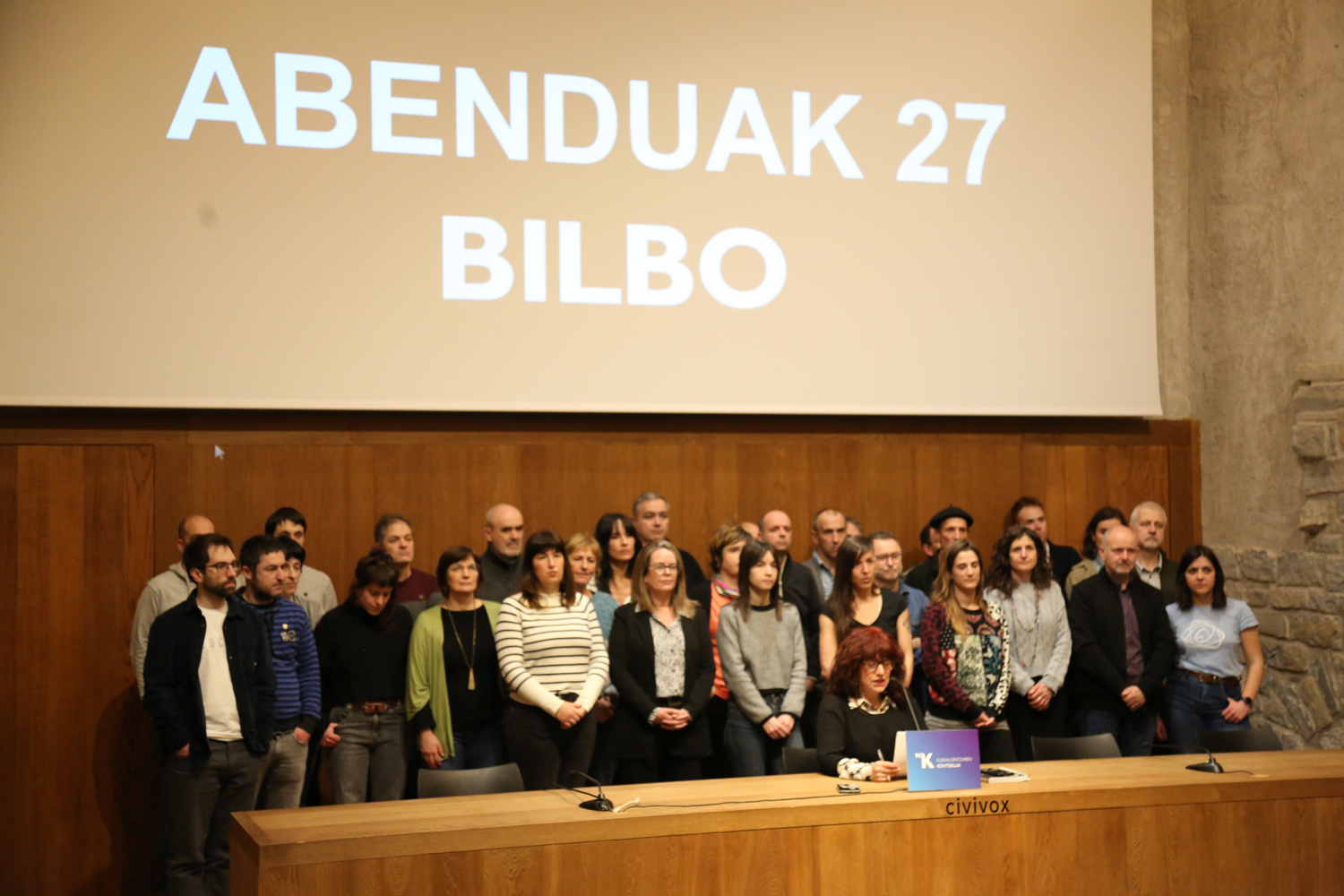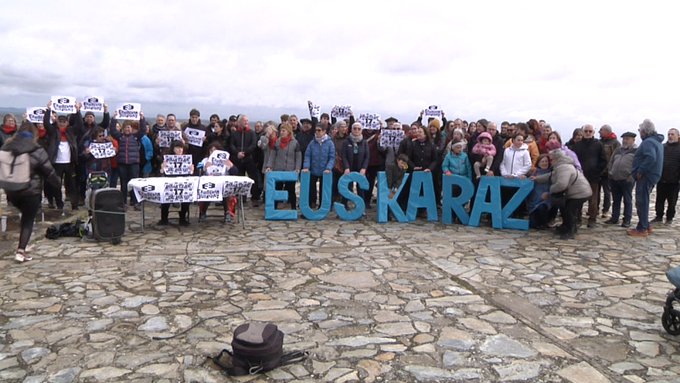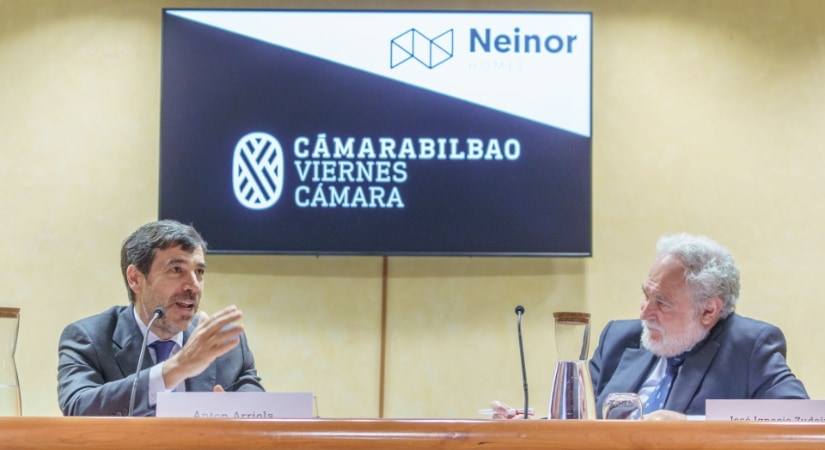Digital platforms: Where has Euskera been lost?
- Lives are increasingly digital, more and more audiovisual. Consumption habits are also like this: Half of the vasco-speakers of Hego Euskal Herria have access to the digital platform. We have adapted, people have adapted. But our language, has it adapted?

A few days after his appearance in the Basque Parliament, the Director-General of the EITB Group, Andoni Aldekoa, is a candy to arrange around the table three experts in the audiovisual world. A sweet that gives a lot of play. First words before you start, detailed summary: “I was rather surprised at the appearance. Well, it doesn't surprise me anymore."
The research group NOR, which is organized around the University of the Basque Country/Euskal Herriko Unibertsitatea, includes several lines of research. They study audio-visual in Basque, and under this umbrella they can distinguish mainly three transversal lines: minority languages, communication and identity. The research group consists of Libe Mimenza, Katixa Agirre and Miren Manias. All three of us have come together. Everyone has their experience, their ideas and their preferred lines of work, and if something unites them, it is a concern for the reality and the future of audiovisual professionals in Euskera.
The first blow at the table, as soon as we start, is given by Mimenza: “When should we stop calling new platforms like Netflix?” Because it is not news either, and in addition, according to the CIES survey, consumption can be considered very generalized: It uses 47% of the vasco-speakers of Hego Euskal Herria. That’s why the CEO of EiTB has surprised the sale of Basque Netflix as a progressive and innovative, something he “had to have thought about ten years ago,” according to Agirre. In addition, using the brand of the multinational. “And, in short, what is the difference with EITB Nahieran?” they shared the question and were questioned. Or rather, it's a lack of detail. Request for detail In the aforementioned hearing, the determination of what is to be done was omitted.
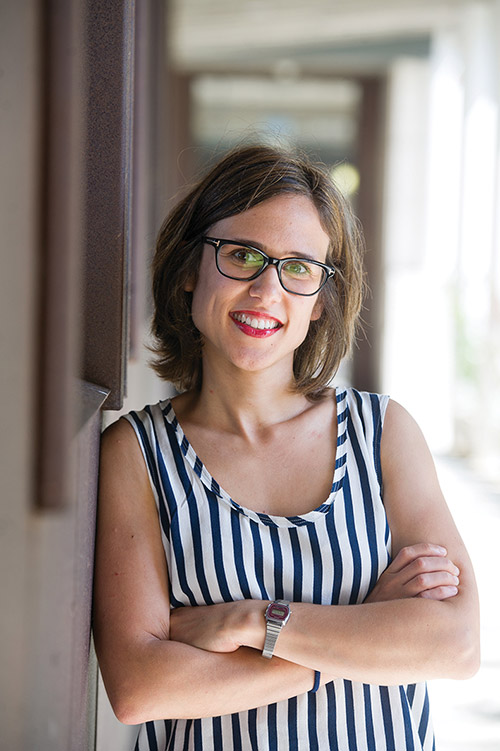
Last fall has been the season of the Basque series at ETB. They have produced three series in Basque of four episodes. The interviewees positively value the productions, “but there is a lack of continuity”. Manías says that a long-term project, a strategy, is needed, but considers that the possibility of changing the driving equipment every four years is an obstacle. “They seem to be in something, every now and then something powerful is done, but I really don’t see anything behind it, it has very little crux.” And, according to Manias, Mimenza generalizes her goal: “We still don’t land in the ecosystem we live in. I have the feeling that we are constantly looking at analogue glasses.”
New ways of doing
“This era demands new ways of doing,” says Mimenza. The lack of EiTB strategy has often been discussed and criticized, and to the extent that it should be the reference of productions in Basque, especially financed with public money, the three consider that it is necessary to continue studying and criticizing, but they have talked about the need to change the perspective as an individual and as a community: “We have the traditional and digital perspective mixed, like a volcano, but some of the axes we have placed before do not serve us.” In this respect, they stress the need to reorganize the industry.
Mimenza states that the borders between traditional television and the new platforms are becoming more and more diffuse and, as the latter is increasingly used, the audiovisual industry must adapt to this phenomenon: “Before we had a common audiovisual production. An ideology. Four television channels. Nowadays, everyone consumes his or her own, what the algorithm gives us and what is different from the partner. It’s a personalized experience, contrary to what it was before.” Manias and Agirre add that, aware that we have lives surrounded by audio-visual, we have to accept them and start building them from the current reality. And for the three, he himself: a good shop window that facilitates consumption and has well-organized content in Basque.
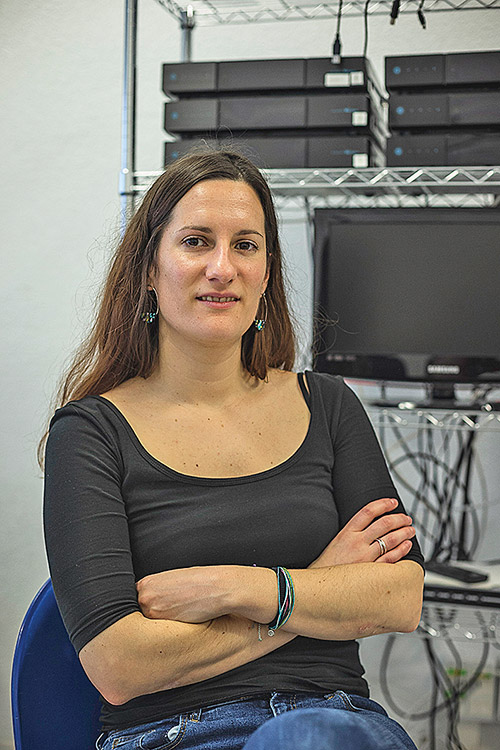
They clearly say what the main axis should be: the Basque. Audiovisual industry focused on Basque translation. This is what all three consider to be mostly missing and most worrying as a whole. “We have public TV, but it is not going to focus on our language and it is not going to focus on the Basque when Euskal Netflix says. It is very difficult for the Basque Country to be its place in this sea,” said Mimenza. If Euskera is not put on the axis, everything will be a “farce” that further reduces our minority language.
How do you fix it?
They have talked about the past from the point of Nostalgia, two and three decades ago, because the supply of content in Basque, especially that of children, was very large. “There were few chains, the sea wasn’t that big and we didn’t lose ourselves,” says Agirre. Now lives the tragedy. When others have made progress, because they believe that the Basque Country has taken a step backwards rather than staying in its place of origin. Producing much less, an example. It has blamed political will and, above all, political conscience, because politicians are not aware of the importance of audiovisual media in shaping society today.
“But I think people care very little about language, when it comes to consuming series and movies,” explains Manias. In other words, the language has remained in the background and what is rewarded is the script. For Mimenza, this phenomenon occurs in fiction and not in informative sessions. “The language is still being sought in its own way, in search of an ideology or, perhaps, because it gives closeness”. However, the three clearly state that audiovisual consumption lives in times of transition. On television, perhaps, the importance of active language selection is maintained, but Agirre believes that there is no need to worry about the transition from television to digital platforms. It says it's a natural technological transition. “Why do I wait at 22:00 and in the meantime swallowing long ads, if I can see them whenever I want on my phone?” In this transition, this phenomenon has endorsed a number of features, among which many did not like it so much years ago, as the subtitles. The new generations are very used to reading subtitles. A hearing study focused on the United States: when you've never seen anything other than English, you're now starting to do it with subtitles.
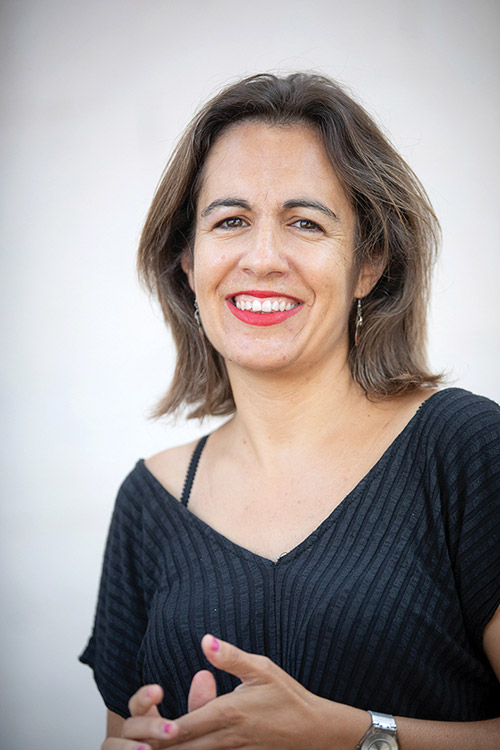
Languages travel more easily than ever before. “So, conditions say, any language could enter that world, and you don’t need a huge infrastructure,” says Agirre. But that's it. “First you have to create it, give the conditions to create it and then know how to spread it.” That is why ETB has come to the fore, because it is a muscle of public money and should therefore be a motor.
Need for regulation
“One thing is regular and another is compliance,” Mimenza says when she asks about the European Union’s audiovisual directive. The General Audiovisual Law is being studied in the Spanish State and all three have joined the ideas about the law of the Basque Country: that the law protects minority languages, that it regulates the industry, but then that the law is complied with. However, they consider that if there is no movement at European level, or a domino effect, it would be very difficult to obtain results from the smallness.
“We have to acknowledge, however, that the Basque country has a position in this world,” said Mimenza, and Manias and Agirre have agreed. There are more and more people who know Euskera, but they believe that if it is not possible to socialize it, on the street and in the digital environment, there is a serious risk of dilution. That is why, they say quite clearly, the Basque country needs legal support in the digital environment. But in addition, Mimenza states that in this digital ecosystem you have to “land for once” and provide spaces for reflection: “How long will the Basque Country last if the steps are not taken? Until we let ourselves be diluted. And this very digital world we live in today is an environment with many dilution risks.”
Alex Aginagalde, spokesperson for Apps Euskaraz
“Euskera enters the platforms or the future of Euskera will be seriously threatened”
.jpg)
They want the screens in Euskera, but it seems like it's a lot to ask. Multinationals will not open their doors to a group of citizens, but they are obliged to comply with the law. Euskera needs legal support on streaming platforms to ensure its future.
They said it was an “ideal time” to present the project.
Yes, we believe so. In these times when the consumption of digital audiovisual platforms has grown so much, today’s young people live their free time without the Basque. Sociolinguistic data indicate that the use of Euskera has stabilized, which, in a way, may be related to the decrease in the television supply in Euskera in the last decade. Consider that data from the 1990 CIES indicated that 70% of CAPV boys and girls saw drawings of the Basque Telebist. Now it's insignificant.
We've already lost a small generation. And that is why we say that we have to take advantage of this moment: either the Basque country enters the platforms strongly or the future of the Basque Country is very much in question.
It all started in November with Disney Euskaraz. Netflix Euskaraz joined in spring.
In the context of the Basque Country Aldia, a group of fathers and mothers from Donostia shared the same concern. It had just been known that in Catalonia an agreement was reached to place the Catalan platform Disney+, after having collected 30,000 signatures. From there we left, and at first the Disney Euskaraz campaign was a success. We saw that there was a real concern in society. For the new year we collected 5,000 signatures and sent official letters to the institutions. The answer that came to us was: Proposal for a hearing in the Committee on Culture of the Basque Parliament The hearing, which had a significant impact on the media, took place a few days when other residents of Bizkaia launched the Netflix Euskaraz signature campaign. The Screens in Euskera come from the union of both.
Has the institutional response remained in the proposal to appear in the Committee on Culture?
The institutions have not contacted us.
What requests did they make?
Our demand was twofold. On the one hand, we urged the multinational Disney to respect linguistic rights and, on the other hand, we urged the institutions here to contact the multinational to include in that platform the contents in Euskera.
In particular, we called the Basque Government because we know that Basque producers are forcing to première children's films in cinemas also in Euskera. We therefore believe that the same should also be applied to foreign producers. This would require the necessary legal protection.
Since then, has the Basque Government done anything?
We have had indirect knowledge that Disney has been contacted and some attempt has been made to protect the Basque country, but it has not been very successful. They say that they have not received a positive response.
Netflix has also met the multinational in May.
The news was made public, but not other. What we have indirectly learned is that both sides had a “good attestation”. It seems that the multinational showed its willingness to integrate the contents in Basque on its platform. We don't know how much, how, what content.
EiTB has announced the existence of the Basque Netflix. They say that not everything is going to be in Euskera, but that Euskera will have its space.
We think it is a good thing that CEO Andoni Aldekoa endorsed our speech, when at that hearing he said that on the streaming platforms “it is necessary that the Basque country be strong to secure the future of the Basque Country”. That is what we defend. But of course, if you create a bilingual tool to do so, and since EiTB's bilingualism devotes most of the financial, personal and technical resources to the Spanish-language channels, it can be very dangerous. On a “Basque” platform, Euskera may be in the background.
It is clear that production in Basque must be encouraged, right?
On the one hand, Basque productions and their productions have to be included in the catalogue, and this is something that must be taken into account in order to boost their production. More resources and more aid. How many films in Basque are produced per year? Ten at most? You can hardly feed a platform with this. Or there will hardly be a sufficiently broad offer in Basque for current consumption habits. Note, producing ten films a year would mean having a content of 20 hours a year. In a few days you can consume the whole offer with complete peace of mind. And on the Netflix platform, there's almost 6,000 content.
The presence of the Basque Country on such a giant platform is null if we continue in these figures. That is why we consider it very important to bring to the Basque country the most successful external content, through doubles and subtitling.
You've made this request to Disney.
We don't ask you to start doubling the old classics now. What we are asking is that the already duplicated and subtitled films be offered in Basque on the platform. This work of translating into the Basque language has already been done, but they are not disseminated. In public money, hours and hours have been translated into Basque in the years. Technically, it should not require a lot of work to hang on to what is already done on the platforms. The only reason for not doing so is simply discrimination.
Another thing is to start doubling all the content. Our request is that all films that stretch at least have the choice in Basque.
That is what they have in Catalonia. You have taken as a reference in some cases.
They're a few years ahead of us. In 2013, an agreement was signed with the multinational Disney and since then all premieres offered in cinemas are doubled in Catalan. So all you've had to do is upload all those movies to the catalog. Its content had already been prepared, but it was only put in Spanish in the catalogue. Thanks to the collection of signatures they have managed to take the step that was lacking.
In Madrid, the General Audiovisual Law is on its way. What can you bring?
It is the implementation of a European directive 2018. Among other things, it says that streaming platforms should devote 30% of their content to European projects. The Spanish procedure is being delayed, but what the draft says is that half of this content of European projects must be state content. There is an option to specify the language in which that 15% will be issued. The Audiovisual Council of Catalonia made an amendment to the draft bill urging that 15% of the contents of the Spanish State be found in other languages. We join in that.
EH Bildu proposes the creation of the Audiovisual Council. This would also be an agent in this process.
[Following this interview the Basque Government has announced that it will not create any advice]. In Europe they have some advice in almost all countries and in Spain it is in Andalusia and Catalonia. In addition to ensuring transparency and diversity of audiovisual media, it would deal with child protection laws, regulation of advertising and regulation of language-related media. We should have a council in Basque in the administrations.
Behatokiak Hizkuntza Eskubideen Egoera 2024 txostena aurkeztu du. Herritarrek helarazitako gertakarien bilduma aztertuta, ondorioztatu dute 2024an egoerak ez duela hobera egin, eta gainera, kexak jaso dituzten hainbat entitateren eskutik urraketak iraunarazteko jarrera sumatu... [+]
Gozamen aparta bezain deskribatzeko zaila dakar, norbaiten hitzak irakurri edo entzun ostean, zera pentsatzeak: “Horixe zen neu aurreko hartan azaltzen saiatu nintzena!”. Idazlea eta itzultzailea da María Reimóndez, eta galegoz aritzen da, hizkuntza... [+]
From linguistics or glotophobia and, of course, hatred against Basque, we have often seen our Basque become the dandruff of all sticks. Last of all, the president of Kutxabank, Anton Arriola, has been shaking our language and giving us galantas.The President of Kutxabank,
... [+]
Don't make a fuss, don't confront, don't victimize... and obey. As oppressed subjects, in this case as Basques, we talk, how many times have we had to listen to them? Ironically, two years ago, at the Euskalale Independentiston Meeting, Esne Arzallus said: "We have arrived here,... [+]
Euskal hizkuntzalaritza esperimentaleko katedra berria estreinatu dute Baionako fakultatean.
Bilbon eginiko aurkezpenean iragarri dute ekitaldia, euskarari "arnas berri bat emateko eta behar duen indarraldia gorpuzten hasteko" lehen urratsa izango dela nabarmenduta. Euskaltzale guztiei, baina, oro har, "justizia sozialean eta gizarte kohesioan aurre... [+]
Euskal Herrian Euskarazek manifestazioa deitu du apirilaren 6rako, 11n EHEko bi kide epaituko dituztelako. Hiriburuetatik autobusak antolatzen ari dira. Bi helburu bete nahi dituzte, batetik, epaituak izango diren bi kideei babesa erakustea, eta bestetik, euskararentzat justizia... [+]
Anton Txekhov, Raymond Carver eta Alice Munroren ipuingintzari buruzko mahai-ingurua egin dute Iker Sancho, Harkaitz Cano eta Isabel Etxeberria idazle eta itzultzaileek, Ignacio Aldecoa zenaren ipuin literarioaren jaialdian, Gasteizen. Beñat Sarasolak gidatuta, autore... [+]
Euskaraldiaren hamaikakoa aurkeztu dute Nafarroan: Julio Soto bertsolaria, Edurne Pena aktorea, Julen Goldarazena musikaria (Flakofonki), Claudia Rodriguez Goxuan Saltsan taldeko abeslaria, Eneko Garcia (Albina Stardust), Yasmine Khris Maansri itzultzaile eta kazetaria,... [+]
Azken hamarkadetan euskararen biziberritzeak duen erronka handienetakoa, euskararen ezagutzaren unibertsalizazioarekin batera, erabilerarena da. Askotan, gazteen euskararen erabileran jarri ohi dugu fokua, baita euskararen erabilerak izan duen eta izan dezakeen bilakaeraren... [+]
Prentsaurrekoan, maiatzaren 17an ospatuko duten Erriberako Euskararen Egunaren inguruko argibideak eman dituzte. Ume, gazte zein helduentzat zuzendua izango da. Ekimena, Erriberan egiten diren ekimenetan indarrak biltzeko eta euskararen normalizazioaren alde saretzeko... [+]
"Poloniar bat etortzen bada eta bost urte pasako baditu proiektu batean, joder agian ez zaio egoki irudituko seme-alabek euskaraz ikastea, ezta?", bankuko lehendakari Anton Arriolak adierazi duenez. Euskalgintzako eragileek gogor kritikatu dute eta esandakoa... [+]









